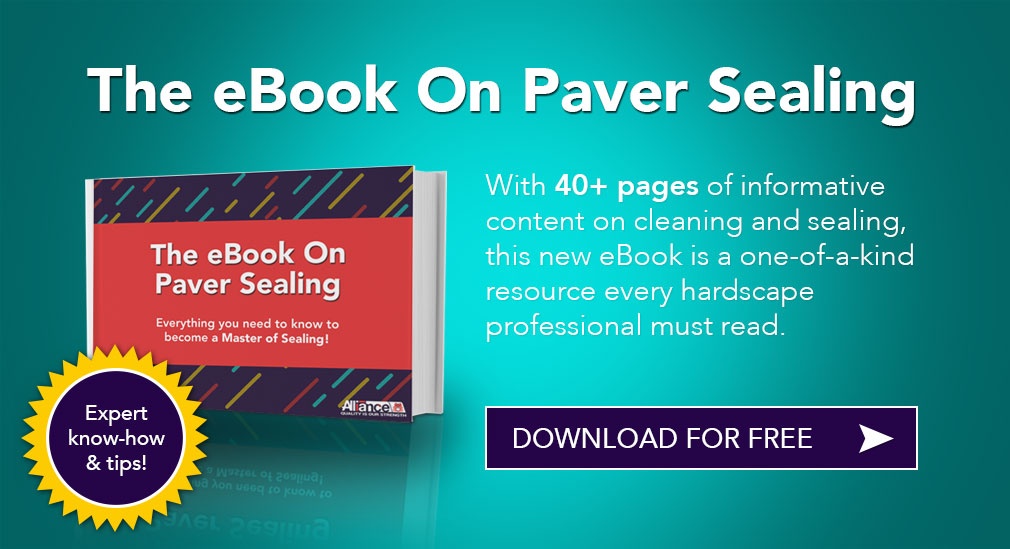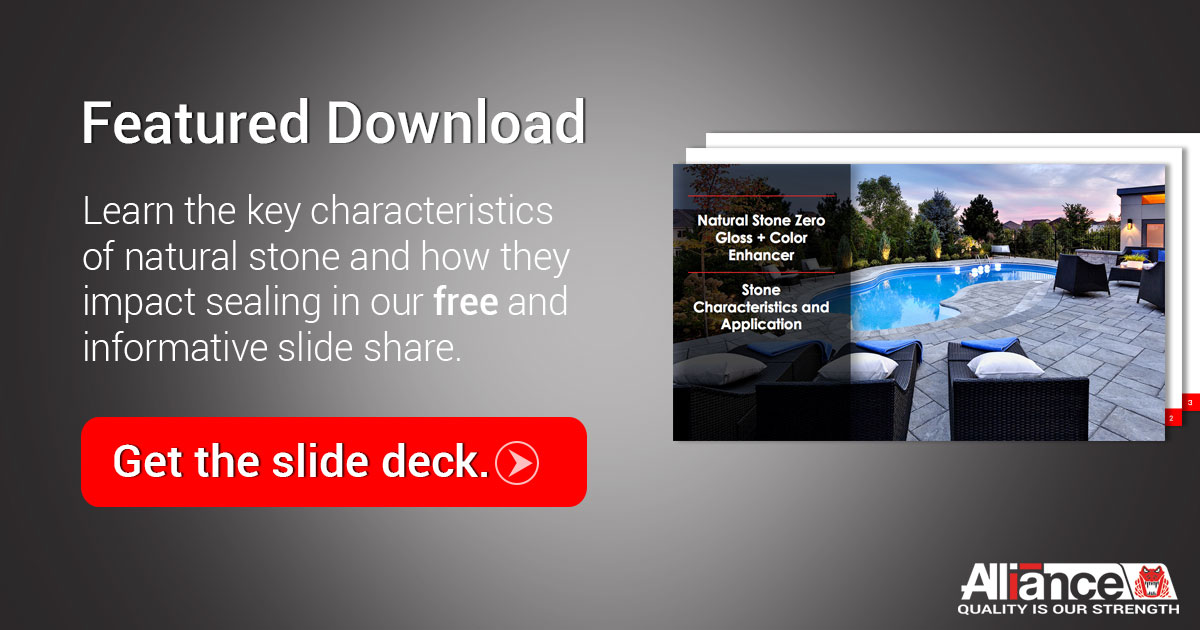HOW TO CHOOSE A NATURAL STONE SEALER
After you’ve familiarized yourself with the type of natural stone you’ll be sealing, your next most important task is choosing the right type of sealer for that stone. In an online article, the experts of Stone World shared these important product attributes you’ll want to look for in a sealer.
Stain Resistance
One of the main purposes of sealing is to protect against staining, right? So it only makes sense to use a sealer that offers protection from oil, grease, and other nasty substances that can ruin a perfect patio or walkway. According to Stone World, you should pick a sealer that “offers protection against the contaminants common to the area of the stone installation.”
Breathability
Stone World shares that breathability “is an often overlooked, but very important, quality that a sealer must possess. Stone sealers that inhibit moisture-vapor transmission can cause eventual deterioration of the stone in addition to discoloration or spalling of the sealer.” Penetrating sealers are generally more breathable and should be considered for sealing natural stone projects.
Freeze/Thaw Stability
As we all know, freeze/thaw cycles have a tremendous impact on the ground. When choosing a natural stone sealer, Stone World recommends the product “should be capable of expanding and contracting, or it will be compromised and quickly lose sealing capabilities.”
UV Resistance
Any sealer being applied to an outdoor natural stone surface should feature UV resistance. The sealer should be able to hold up in sunlight without yellowing or deteriorating. Longevity of sealers will vary based on amount of UV light, traffic and other factors. For specifics on how long a sealer will last, you should always check with the manufacturer.
Easy Reapplication
This is an important one. Due to normal wear and tear, your natural stone surface will need to be resealed over time. And this is a process you certainly do not want to overcomplicate. Stone World suggests choosing a sealer “that can be reapplied without the requirement of stripping the existing sealer prior to reapplication.”
Slip Resistance
“A sealer, whether it is a penetrating or film-forming, should not adversely affect the stone's slip resistance.” Penetrating sealers are designed to work deep within the stone to block pores and capillary pathways, making them a great choice for natural stone.
For the complete Stone World article, click here. If you’re ready to learn about the basics of sealing natural stone, be sure to check out our blog post, “Sealing Natural Stone.”
There are several nuances when it comes to sealing natural stone. Read all about them here!


